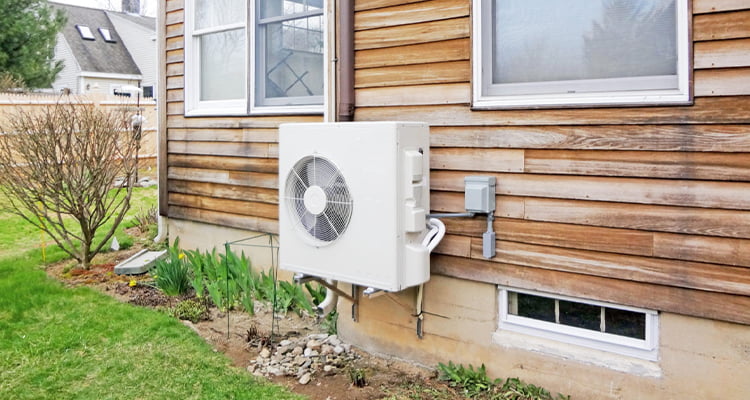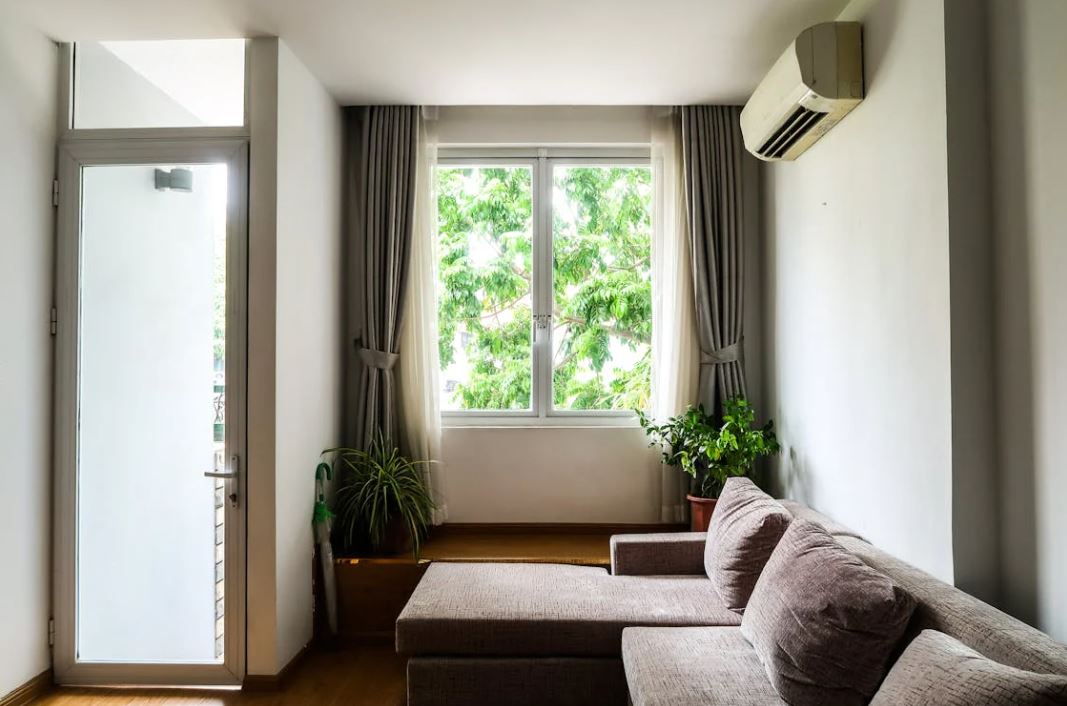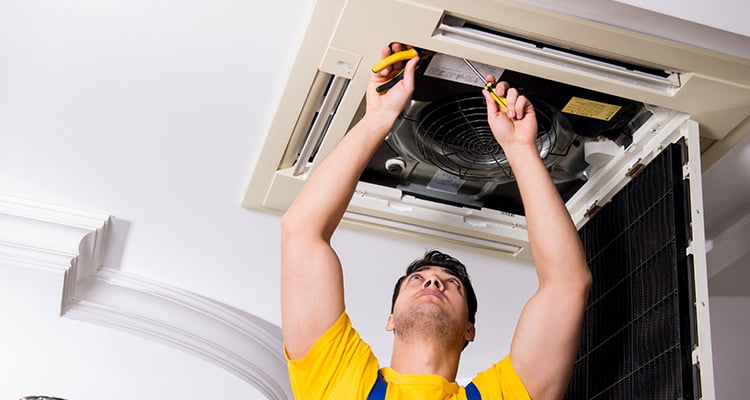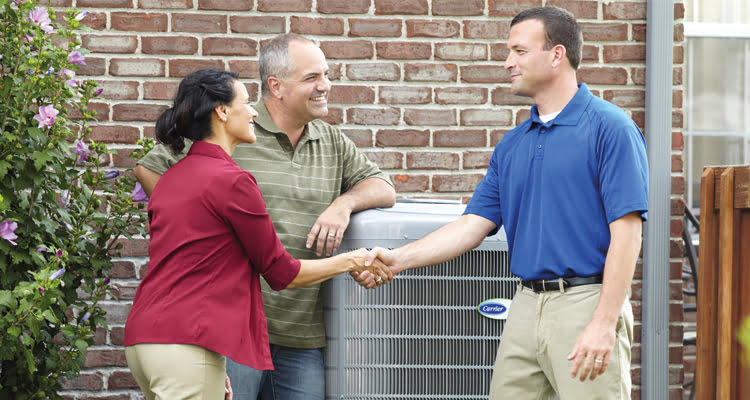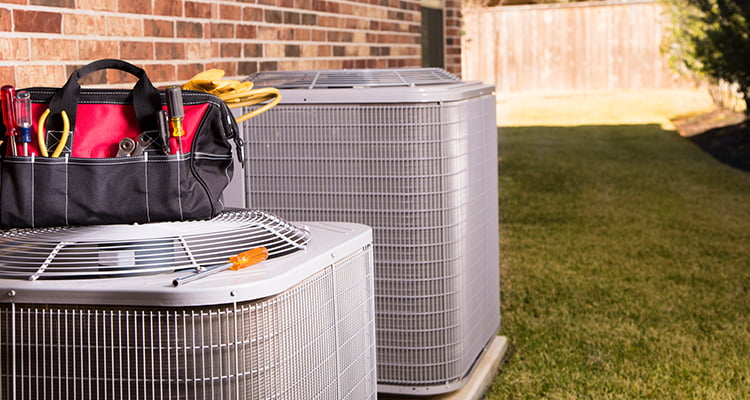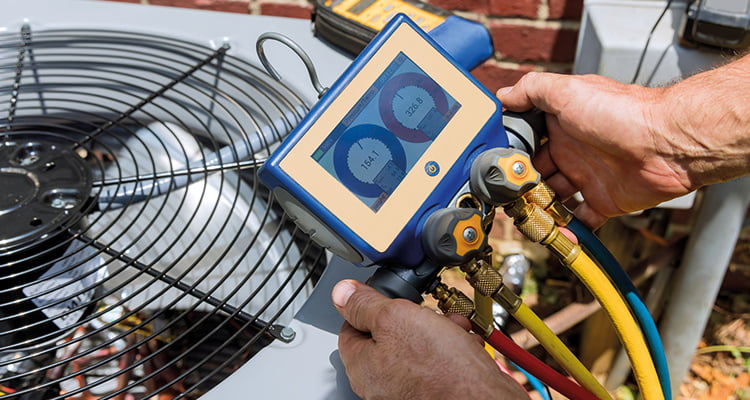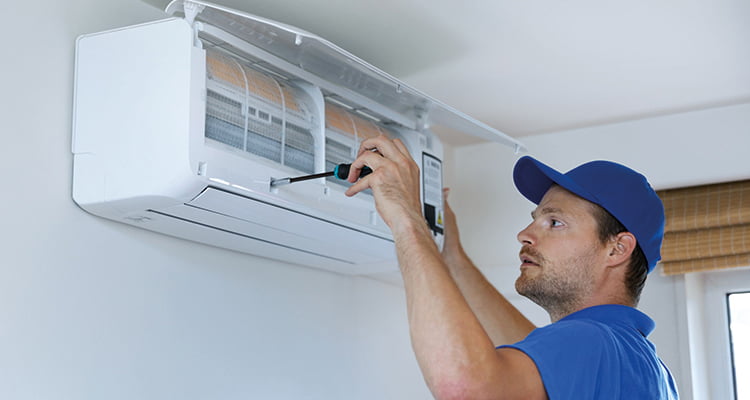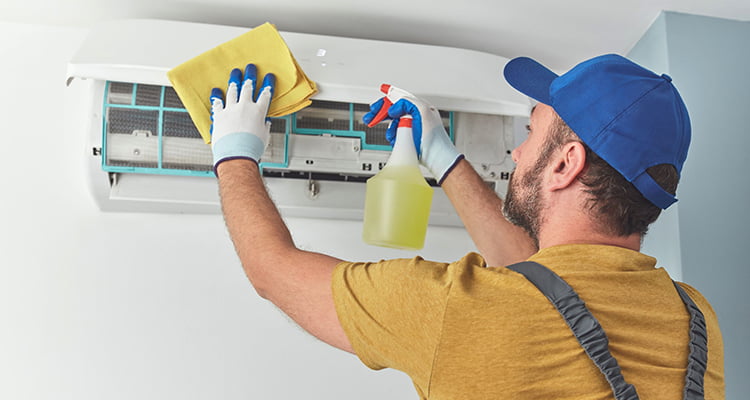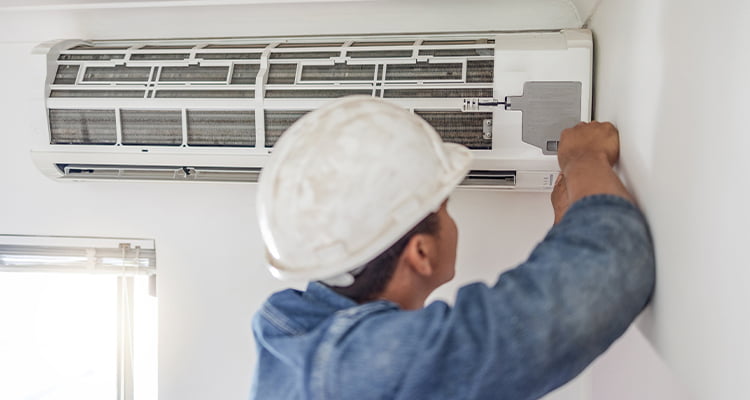When the summer heat strikes, there’s nothing more comforting than the cool air from a well-functioning central air conditioner. However, this comfort relies heavily on regular central air conditioner repair and maintenance.
Neglecting these crucial tasks can lead to higher energy bills, reduced efficiency, and even complete system failure. But no one needs that, right? That’s where you need professional HVAC contractors.
This blog will explain to you the importance of regulating AC repair and how it can save you money.
Why Regular Central Air Conditioner Repair And Maintenance Matter
Prolongs The Lifespan Of Your System
Your central air conditioner is a significant investment. Like any other major appliance, it needs regular maintenance to operate efficiently.
Routine check-ups and timely repairs can extend the lifespan of your system by preventing minor issues from escalating into major problems. You avoid the cost and hassle of a complete system replacement by addressing small issues early.
Enhances Energy Efficiency
A well-maintained central air conditioner operates more efficiently, using less energy to cool your home. When components like filters, coils, and fins are clean and in good condition, the system doesn’t have to work as hard to maintain the desired temperature.
This not only saves energy but also reduces your utility bills. Regular central air conditioner repair ensures that your unit runs at peak efficiency, providing optimal cooling without unnecessary energy consumption.
Reduces Repair Costs
Regular maintenance can save you a significant amount of money in the long run. By scheduling routine inspections and servicing, you can identify and fix minor issues before they become costly repairs.
Regular central air conditioner repair and maintenance help you avoid unexpected breakdowns and the high costs associated with emergency repairs.
Improves Air Quality
Your central air conditioner plays a crucial role in maintaining indoor air quality. Over time, dust, dirt, and other pollutants can accumulate in the system, leading to poor air quality and potential health issues.
Regular maintenance includes cleaning and replacing filters, ensuring that the air circulating in your home is clean and healthy. This is especially important for households with individuals who suffer from allergies or respiratory conditions.
Maintains Optimal Performance
An air conditioner that receives regular maintenance performs better than one that is neglected. During a maintenance check, HVAC technicians will inspect and tune up various components of your system, ensuring that everything is working correctly.
This includes checking the refrigerant levels, cleaning the coils, and ensuring that the thermostat is functioning properly. Regular central air conditioner repair keeps your system running smoothly, providing consistent and reliable cooling throughout the hot months.
What Does Regular Maintenance Involve?
Inspection Of Components
A thorough inspection is a critical part of regular maintenance. HVAC technicians will examine various components of your air conditioner, including the compressor, evaporator coil, condenser coil, and ductwork.
They will check for signs of wear and tear, leaks, and other issues that could affect the system’s performance.
Cleaning And Replacing Filters
Filters are a crucial component of your central air conditioner. They trap dust, dirt, and other particles, preventing them from entering the system and circulating in your home.
Over time, filters can become clogged, reducing airflow and efficiency. Regular maintenance includes cleaning or replacing filters to ensure optimal performance and air quality.
Checking Refrigerant Levels
Refrigerant is essential for the cooling process in your air conditioner. During a maintenance check, technicians will measure the refrigerant levels and ensure that there are no leaks.
Low refrigerant levels can lead to poor cooling performance and higher energy consumption. Regular central air conditioner repair includes recharging the refrigerant if necessary and fixing any leaks.
Inspecting And Cleaning Coils
The evaporator and condenser coils are vital for the heat exchange process in your air conditioner. Over time, these coils can become dirty, reducing their ability to transfer heat efficiently. Regular maintenance includes inspecting and cleaning the coils to ensure that your system operates at peak efficiency.
Checking Thermostat Functionality
The thermostat controls the temperature settings of your air conditioner. During a maintenance check, technicians will ensure that the thermostat is calibrated correctly and functioning properly.
This ensures that your system maintains the desired temperature without unnecessary cycling, which can reduce efficiency and increase wear and tear.
Signs That Your Air Conditioner Needs Repair
Unusual Noises
If you hear strange noises coming from your air conditioner, it could be a sign of a problem. Common sounds that indicate a need for repair include grinding, squealing, and banging.
These noises can be caused by loose or worn-out components and should be addressed immediately to prevent further damage.
Reduced Cooling Efficiency
If your air conditioner is not cooling your home as effectively as it used to, it may need repair. This could be due to low refrigerant levels, dirty coils, or other issues that affect the system’s performance.
Regular central air conditioner repair can restore your system’s cooling efficiency and ensure that your home remains comfortable.
Frequent Cycling
An air conditioner that frequently turns on and off may have an issue with the thermostat, compressor, or other components. This can lead to increased energy consumption and wear and tear on the system.
Regular maintenance can identify and fix the cause of frequent cycling, ensuring that your system operates efficiently.
High Energy Bills
If you notice a sudden increase in your energy bills, it could be a sign that your air conditioner is not operating efficiently. Issues like dirty filters, low refrigerant levels, and worn-out components can cause your system to use more energy to cool your home.
Regular central air conditioner repair can help you identify and fix these issues, reducing your energy costs.
Poor Airflow
If the airflow from your vents is weak, it could indicate a problem with the ductwork, blower, or other components of your air conditioner. Poor airflow can reduce the system’s cooling efficiency and affect indoor air quality.
Regular maintenance can identify and fix the cause of poor airflow, ensuring that your home stays cool and comfortable.
About Us
Pro West Heating & Air Conditioning is dedicated to providing top-notch residential HVAC services across the Lower Mainland of BC, including Coquitlam, Langley, Tri-Cities, Surrey, Burnaby, and beyond.
Our experienced professionals ensure your home’s comfort and efficiency with expert installation, maintenance, and repair services.
For more information or to schedule a service, visit our website or contact us today!

